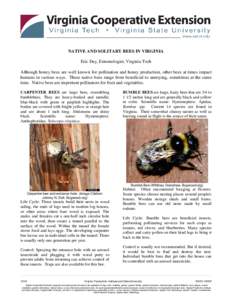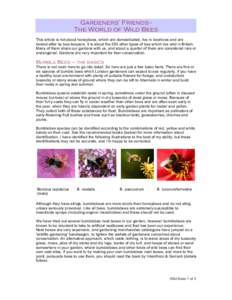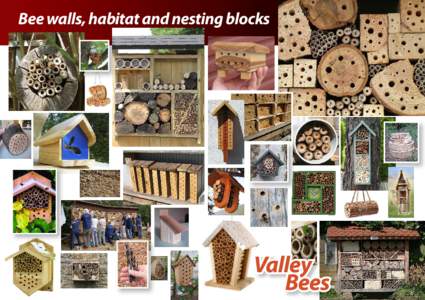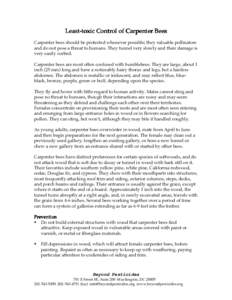<--- Back to Details
| First Page | Document Content | |
|---|---|---|
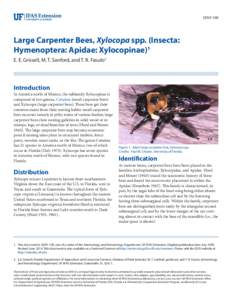 Date: 2015-04-06 11:43:16Xylocopinae Hymenoptera Hexapoda Insect ecology Carpenter bee Eastern carpenter bee Xylocopa micans Apidae Bee Ceratina Xylocopa violacea Xylocopa sulcatipes |
Add to Reading List |
 EENY-100 Large Carpenter Bees, Xylocopa spp. (Insecta: Hymenoptera: Apidae: Xylocopinae)1 E. E. Grissell, M. T. Sanford, and T. R. Fasulo2
EENY-100 Large Carpenter Bees, Xylocopa spp. (Insecta: Hymenoptera: Apidae: Xylocopinae)1 E. E. Grissell, M. T. Sanford, and T. R. Fasulo2